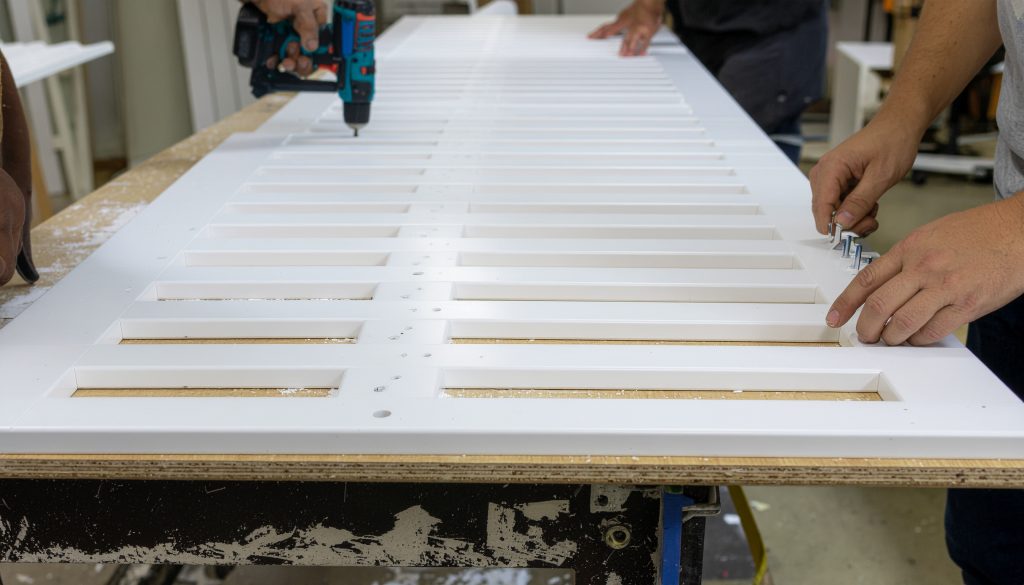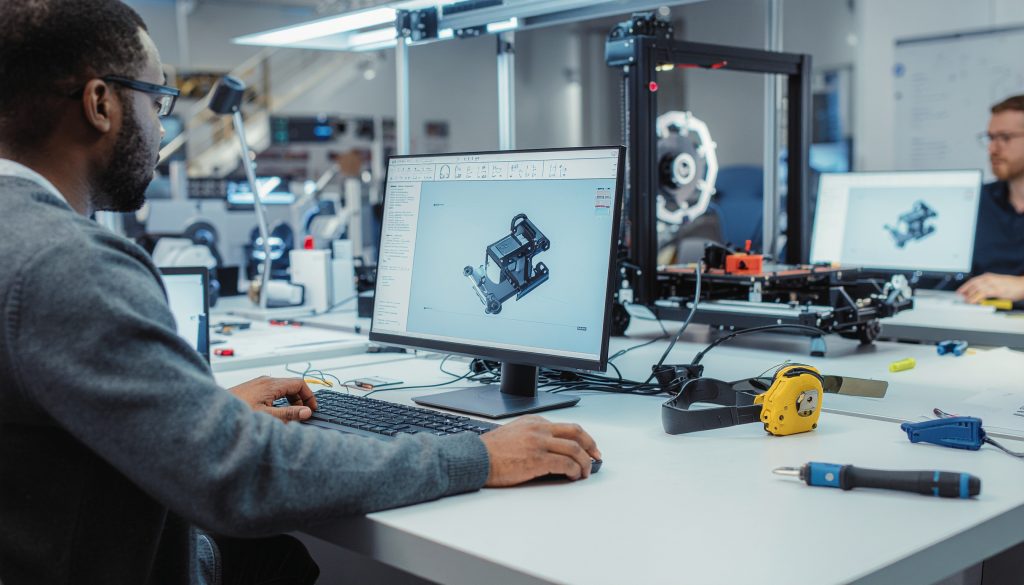Launching a new physical product used to mean big factories, bigger budgets, and massive inventory risks. But for today’s agile innovators, there’s a smarter way forward: small batch production.
Whether you’re testing a niche product idea, launching a Kickstarter, or validating your MVP on Amazon, small batch production lets you build smart, launch fast, and minimize risk—without sacrificing quality.
What Is Small Batch Production?
Small batch production is the process of manufacturing a limited quantity of units—typically between 20 and 500—rather than committing to high-volume runs from the start.
For product innovators, it’s the bridge between a working prototype and scalable production. Instead of jumping into mass manufacturing with minimum orders in the thousands, small batch production gives you room to test, iterate, and grow with confidence.
At PrototyperLab, small batch production starts with as few as 20 units, making it accessible to solo founders, early-stage startups, and lean product teams who want to build and test without blowing their budget.
Why Small Batch Production Is a Game-Changer
Small batch production isn’t just a cost-saving tool—it’s a product strategy. Here’s how founders are using it to go from idea to market in weeks, not years.

1. Validate Product-Market Fit Before Scaling
Most failed products don’t flop because of bad design—they fail because they launched too big, too soon. Small batch production allows you to test real demand in the real world before making large investments.
You can:
- Launch a short-run SKU on Amazon or Etsy.
- Send sample units to influencers or early adopters.
- Get actionable feedback before locking in your design.
Example: A startup develops a niche kitchen tool. They produce 30 units, send samples to micro-influencers, and generate $3,000 in early sales. The reviews help fine-tune version 2.0 before they scale to 500 units.
2. Avoid High Minimum Order Quantities (MOQs)
Traditional manufacturers often require 500–1,000 units to start. That means committing tens of thousands of dollars before you even know if people want your product.
With PrototyperLab’s small batch production, founders can:
- Start with just 20–100 units
- Preserve capital
- Reduce deadstock risk
It’s perfect for product launches, MVPs, pilot programs, and crowdfunding rewards.
3. Move Fast with Lower Overhead
Speed matters. If you’re stuck waiting three months for mass production, you’re missing your window.
At PrototyperLab:
- Production starts immediately after prototyping
- First batches are delivered in 30 days
- No delays from overseas factory minimums or backlogs
This speed gives you a first-mover advantage, especially in fast-changing markets like consumer electronics, home gadgets, and novelty toys.
The Strategic Benefits of Small Batch Production
Let’s go deeper into why small batch production aligns with how modern founders operate.

Rapid Iteration
With small runs, you’re free to:
- Test multiple design versions
- Adjust based on real customer usage
- Update packaging or instructions
Iteration is key to success in physical product development—and small batches make it affordable.
Inventory Control
Instead of tying up thousands in unsold stock:
- Produce what you can sell
- Scale up only when the numbers make sense
- Avoid warehousing fees or obsolete inventory
Founders using small batch production maintain better cash flow and more agile supply chains.
Lower Risk, Lower Cost
Building 100 units costs less than building 1,000. But the risk differential is even more important.
If your first version flops, you haven’t sunk your launch. You’ve learned and adapted—and your runway is still intact.
Better Quality Control
Smaller batches mean:
- Tighter production oversight
- Easier defect tracking
- Hands-on adjustments in real time
With PrototyperLab’s Vietnam-based production and US engineering oversight, quality is never compromised—even at low volumes.
Small Batch Production vs. Mass Production
| Feature | Small Batch Production | Mass Production |
| MOQ | 20–500 units | 1,000+ units |
| Cost per Unit | Higher | Lower |
| Upfront Cost | Low | High |
| Turnaround Time | ~30 days | 60–120+ days |
| Ideal For | Testing, validating, launching | Scaling proven products |
| Flexibility | High | Low |
| Risk | Low | High |
If you’re launching a new product, small batch production is the clear winner. Save mass production for when you’re scaling—not starting.
Who Should Use Small Batch Production?
This strategy isn’t just for scrappy startups—it’s ideal for any founder operating under constraints or urgency.
Best-Fit Use Cases
- eCommerce Sellers: Test new product lines with low risk
- Kickstarter Creators: Deliver rewards efficiently
- Amazon Launches: Validate before investing in PPC
- IoT & Smart Product Startups: Field test prototypes
- Niche Market Innovators: Serve specialty audiences without overcommitting
How Small Batch Production Works at PrototyperLab
At PrototyperLab, the small batch production process is designed specifically for founders who value speed, cost-efficiency, and full control. Whether you’re launching your first physical product or preparing to scale after a successful test, the workflow is optimized for agility—without compromising on quality.
Here’s how it works, step by step:
1. Rapid Prototyping in Just 7 Days
Everything starts with a working prototype. PrototyperLab pairs you with a dedicated engineer who helps refine your concept into a functional, testable product. Using in-house 3D printing, CNC machining, or silicone molding (depending on your product needs), a prototype is built and delivered within 7 days.
This fast turnaround means you can move from concept to physical iteration in under a week—critical for tight launch windows or upcoming campaign deadlines.
2. Transparent Pricing with No Surprises
Once the prototype is complete and you’re ready for a test run, PrototyperLab provides a clear, line-item quote for small batch production. You’ll see:
- Engineering hours (billed at $25/hour)
- Material costs
- Assembly or fabrication costs
- Estimated delivery timeline
There are no minimum commitments, no setup fees, and no hidden markups—just honest pricing that lets you plan your next move with confidence.
3. Low-Volume Manufacturing—Starting at 20 Units
PrototyperLab specializes in production runs as small as 20 units. This makes it ideal for:
- Market validation
- Influencer seeding
- Crowdfunding rewards
- Pilot programs
The team sources materials, assembles units, and performs quality control from its Vietnam-based production facilities—keeping costs low without compromising on craftsmanship.
4. Direct Communication & Fast Feedback Loops
Unlike working with traditional manufacturers, you won’t get passed around from sales to support to operations. Your project is handled by a focused team of engineers and a dedicated project manager who understands your product.
Need to make a last-minute design change or swap out a material? No problem. The small batch model makes adjustments simple, fast, and affordable.
5. Test. Learn. Scale.
Once your first batch is complete, you can start testing in the real world. Gather feedback, track customer reviews, and assess performance. Based on the results, you can refine the product and either reorder another small run—or scale up with support from PrototyperLab’s vetted manufacturing partners.
This model empowers founders to launch with precision, build traction, and avoid the pitfalls of overproduction.
Real-World Example: 25 Units to Market in 45 Days
A founder working on a smart pet gadget had a functioning prototype but needed to test demand. They produced 25 units through PrototyperLab, set up an Amazon test page, and sent a few units to YouTube reviewers.
Within 6 weeks:
- 14 units sold organically
- 3 Amazon reviews were published
- 2 influencers requested bulk orders
- The founder updated the product and ordered 150 units
This type of agile launch wouldn’t be possible with a traditional manufacturer.

Common Myths About Small Batch Production
Despite its growing popularity among startups and lean product teams, small batch production is still misunderstood. Many founders hesitate because of outdated assumptions about cost, complexity, or capability. Let’s bust a few of the most common myths that might be holding you back.
“It’s too expensive per unit.”
Yes, unit cost is higher—but total risk is lower. You’re paying for control, speed, and market validation.
“No factory will take small orders.”
Correct—for traditional mass manufacturers. But agile firms like PrototyperLab are built specifically for low-volume manufacturing.
“It’s only for low-tech products.”
Wrong. From IoT devices to injection-molded parts, small batch production covers a wide range of materials and techniques. PrototyperLab works with:
- Plastics
- Thermoplastics
- CNC metal parts
- Silicone
- Wood
- Resin
Start Smart. Scale Fast.
Every founder wants to launch with confidence—but confidence doesn’t come from guesswork or warehouse debt. It comes from real-world testing, flexible production, and smart iteration.
Small batch production is how modern innovators get there.
At PrototyperLab, small batch production means:
- 7-day prototyping
- 20-unit minimums
- US contracts + Vietnam production
- Transparent $25/hour pricing
If you’re ready to test your idea without wasting time or money, it’s time to build your first batch.

